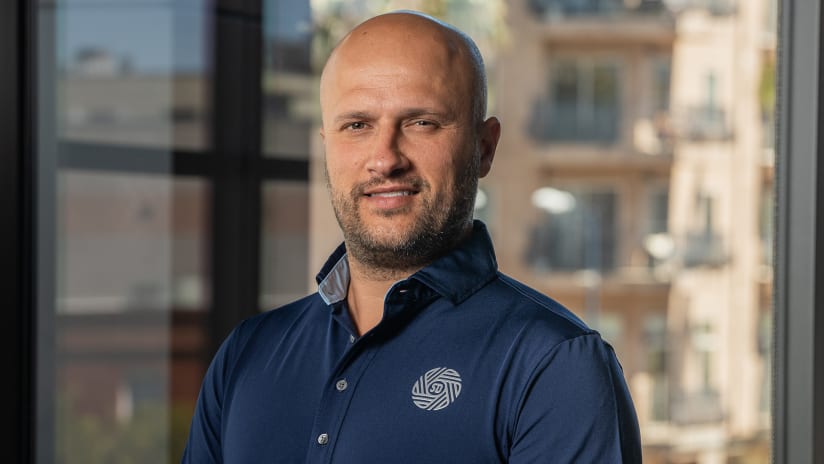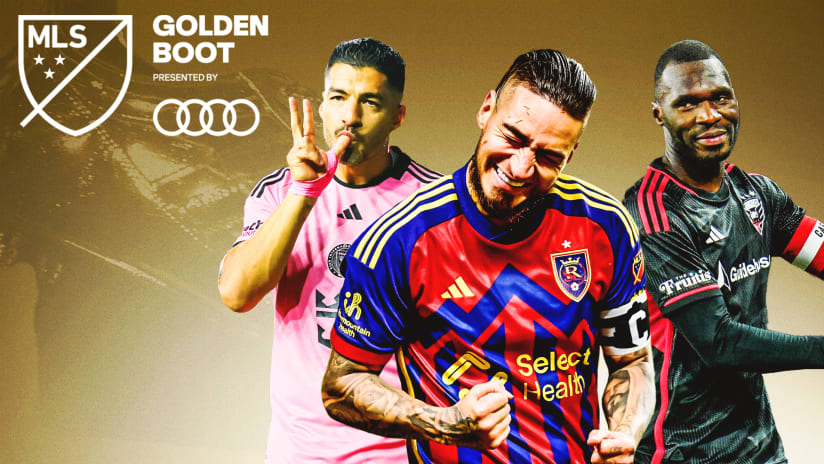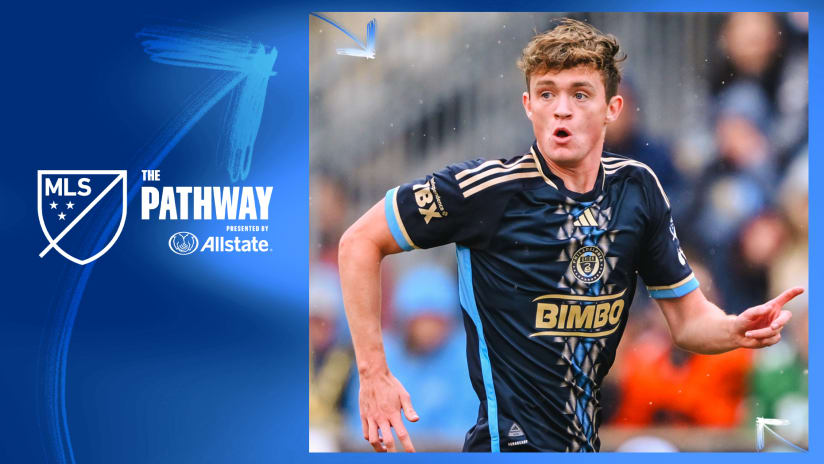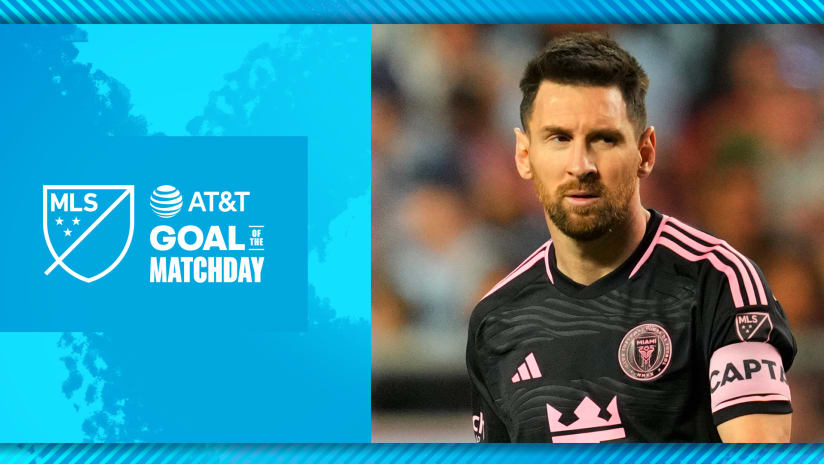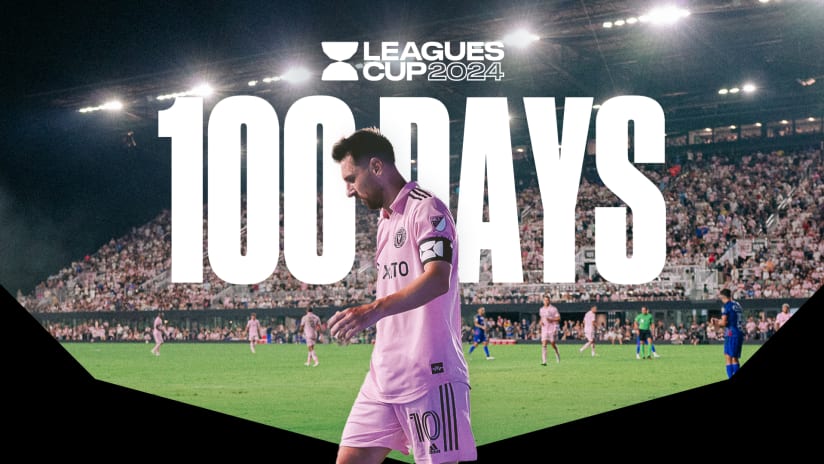the Los Angeles Galaxy - and accrued a record 164 appearances for the U.S. national team.
He certainly stood out on the field, thanks to his speed. It also didn't hurt that he was quite recognizable due to his dreadlocks and he even hosted an MTV show, Mega-Dose, for a while.
But always had it made?
Well, not exactly.
While blessed with talent and plenty of speed to burn, Jones had to overcome more than enough discrimination and adversity -- a lot of it because of his size (5-7, 145 lbs.) to get to where he is today.
Today Jones announced that 2007 would be his final MLS season.
Jones, who turns 37 on June 16, has been one of the constants for a league that has grown in fits and starts. Jones, not surprisingly, played an important role, not just in the development of the league, but on the U.S. national team as well.
If you know the story of Jones, please be patient. If you don't, get ready to be educated.
Incredible as it may sound, he almost didn't get there, if it wasn't for his desire, heart, and of course, talent.
While growing up in Westlake Village, Calif. -- the same area that produced another U.S. international -- National Soccer Hall of Famer Eric Wynalda -- Jones was cut from his ODP team not once, but twice.
Honest.
In a country that has become accustomed to behemoth American football players, coaches thought he was too small to do the job, even in a sport like soccer.
"I had to do more than other, bigger boys in my age groups in my early days in order to get picked by some coaches for a place on the various teams," he said years ago.
That didn't deter him.
When it came to college, he entered UCLA as a non-scholarship athlete.
"I was the darkhorse," Jones once said. "I had to believe in myself. Nobody knew who I was and those who did know didn't think that I could make it at even the college level."
That didn't deter him.
Jones became a second-team All-American before joining the U.S. Olympic team and the U.S. national team and never looked back. He played three midfield positions and at forward, usually confounding defenders and leaving them in the dust down the right flank.
He played at Coventry City in England and then for a short stint at Vasco da Gama in Brazil -- becoming only among a handful of U.S. players who performed for pro teams on three continents -- before returning to the States to become one of the founding players of a fledgling league called MLS in 1996. He was allocated to the Galaxy.
Of all of the 10 original players from the 1996 season still standing and running around MLS grounds -- Real Salt Lake's Jason Kreis and Eddie Pope, Chivas USA's Jesse Marsch and Ante Razov, Chicago Fire's Chris Armas and Diego Gutierrez, the Colorado Rapids' Zach Thornton, New England Revolution's Steve Ralston and D.C. United's Jaime Moreno are the others -- Jones is the only one who has remained with the same club team for all of the MLS's first dozen years. No mean feat in sports in this day and age, where players move faster than Jones motored in his prime.
To review Jones' career is to take a mini-tour of U.S. soccer and MLS at the loftiest levels.
He is the Galaxy's all-time leader in goals (66) and games (281). His career year? Easy. That was 1998, when he totaled 19 goals and 13 assists en route to MLS Best XI honors and U.S. Soccer Male Athlete of the Year.
He performed in five MLS Cups, winning twice (2002, 2005), and for two Lamar Hunt U.S. Open Cup championship sides (2001, 2005).
He also participated in three World Cups -- 1994, 1998 and 2002 -- and helped the U.S. reach a fourth (2006). Less than a month after making his national team debut in 1992, Jones connected for his first international goal, collecting a goal and an assist in a win against the Ivory Coast. At the age of 27, Jones became the youngest man in the world to crack the 100-cap barrier.
But there's more to soccer than just hard, cold numbers. There is a person with a heart beating behind that shirt. And the two shirts Jones has worn more than any in the past 15 years has been the gold, forest green and black of the Galaxy and the red, white and blue of the USA.
He has worn those shirts with passion and pride, entertaining fans and picking up a quite a few wins, goals and assists along the way.
Whether it was in quantity, in beauty or just dramatic, everyone has a memorable Cobi Jones performance, goal or assist.
Here are just a few that come to mind:
Now he has some 30 games -- perhaps a few more if the Galaxy advance in the Open Cup or the playoffs -- to provide some more heroics and magic for one last time around the league.
If the American soccer media, U.S. national team coaches and Hall of Fame members get it right in three years time, Cobi Jones will stand at the podium at the National Soccer Hall of Fame and Museum in Oneonta, N.Y., and give his induction speech to cap his illustrious career.
No one will have to remind Jones that all his hard work was worth it. He proved that years ago when someone told him he wasn't big enough to make an ODP team.
They forgot how big his heart was -- and still is.
Michael Lewis has covered every MLS Cup Final and is editor of BigAppleSoccer.com. He can be reached at SoccerWriter516@aol.com. Views and opinions expressed in this column are the author's, and not necessarily those of Major League Soccer or MLSnet.com.


